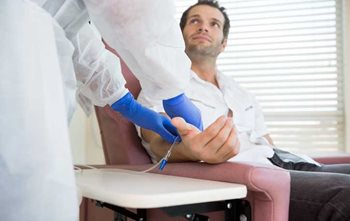
Prevention and Management of Intravenous Extravasation
Intravenous therapy is one of the most common nursing processes. However, administering medications and/or solutions intravenously is not without significant risk. One of these risks is IV extravasation, the inadvertent infusion of a vesicant into tissue rather than into the intended venous system. This complication can result in catastrophic injury and is the basis of a large number of malpractice lawsuits. To protect the nurse, the facility, other members of the healthcare team and, most of all, the patient, the nurse must be knowledgeable regarding appropriate IV sites, which drugs and solutions are vesicants, and the appropriate actions to take in the event of an extravasation. Extravasations cannot be eliminated in all circumstances, but appropriate care can minimize the risk, as well as the negative effects when it does occur. This instructional CNE course has been designed to provide the relevant information needed to meet this goal and provides 1 contact hour of continuing education.
Questions? Check out our FAQs page and How Online IV Certification Works!
Objectives
Upon completion of this course, the participant will be able to:
- Distinguish the difference between an infiltration and an extravasation.
- Describe INS and ONS standards of practice related to vesicant administration.
- Discuss appropriate measures to prevent an IV extravasation.
- Recognize at least three classes of drug generally accepted as vesicants.
- Discuss at least four measures used to treat extravasations.
Curriculum
Chapter 1: Introduction
- Definitions
Scope of the Problem- Liability
- Standards of Practice
Chapter 3: Vesicant Lists
- Antineoplastic Agents
- Non-cytotoxic Agents
- Antidotes
- Administration
Chapter 6: References
- California Bill 241
- Implicit Bias in Healthcare
- What is Implicit Bias?
- Implications of Implicit Bias in Healthcare
- How to Reduce Implicit Bias
Price: $12.00
Contact Hour: 1

Course Author

Pamela Clark
Pamela Clark, CRNI, is an infusion nurse with the Houston Methodist Sugar Land Hospital. She has more than 35 years of experience in infusion therapy and infusion education with both licensed nurses and patients. Her experience spans multiple infusion settings including: acute care, long-term care, home infusion, and ambulatory infusion care. She also has experience in oncology and oncology research.
Read Full BioCourse Accreditation
See our Accreditation Statements page to view our accreditation information.